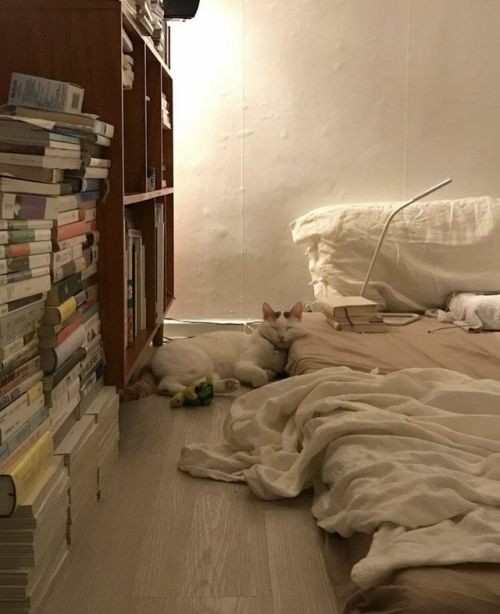1.Learn The Most Common Words Of Your Target Language First. The 300 Most Frequently Used Words Represent

1.Learn the most common words of your target language first. The 300 most frequently used words represent about 65% of the words of a language and the 2000 most common give you about 90%. So there’s no point in wasting your time learning more complicated words when you begin your language learning journey.
2.Use flash cards! They’re simple and effective. What’s not to love? I suggest making digital flashcards because they’re quicker to make and you’d be able to use them anywhere.
3.Practice often. Learning vocabulary means being able to say and write the word as well as recognize the word when you see or hear it. So even after you’ve learned words, seek out opportunities where you can apply them in a real life setting. This means chatting in your target language online through video chat or text message or in real life through a conversation club. You may even write journal entries in your target language.
4.Use spaced repetition. You retain information better when you learn it periodically. So rather than spending half an hour review your flashcards and then not touching them for a month, it’s better to review then in shorter intervals every day or every other day.
5.Read children’s books. Reading is another great way of learning words and recognizing them in a context. For beginners, children’s books in your target language are a great way to start. When you get better, start reading your favorite books or even the news in the language you’re learning.
More Posts from Amandadiamond and Others
24 Invaluable Skills To Learn For Free Online This Year
Here’s an easy resolution: This stuff is all free as long as you have access to a computer, and the skills you learn will be invaluable in your career, and/or life in general.
1. Become awesome at Excel.
Chandoo is one of many gracious Excel experts who wants to share their knowledge with the world. Excel excellence is one of those skills that will improve your chances of getting a good job instantly, and it will continue to prove invaluable over the course of your career. What are you waiting for?
2. Learn how to code.
littleanimalgifs.tumblr.com
Perhaps no other skill you can learn for free online has as much potential to lead to a lucrative career. Want to build a site for your startup? Want to build the next big app? Want to get hired at a place like BuzzFeed? You should learn to code. There are a lot of places that offer free or cheap online coding tutorials, but I recommend Code Academy for their breadth and innovative program. If you want to try a more traditional route, Harvard offers its excellent Introduction to Computer Science course online for free.
3. Make a dynamic website.
You could use a pre-existing template or blogging service, or you could learn Ruby on Rails and probably change your life forever. Here’s an extremely helpful long list of free Ruby learning tools that includes everything from Rails for Zombies to Learn Ruby The Hard Way. Go! Ruby! Some basic programming experience, like one of the courses above, might be helpful (but not necessarily required if you’re patient with yourself).
4. Learn to make a mobile game.
If you’re not interested in coding anything other than fun game apps, you could trythis course from the University of Reading. It promises to teach you how to build a game in Java, even if you don’t have programming experience! If you want to make a truly great game, you might want to read/listen up on Game Theory first.
5. Start reading faster.
Spreeder is a free online program that will improve your reading skill and comprehension no matter how old you are. With enough practice, you could learn to double, triple, or even quadruple the speed at which you read passages currently, which is basically like adding years to your life.
6. Learn a language!
With Duolingo, you can learn Spanish, French, Portuguese, Italian, or English (from any of the above or more). There’s a mobile app and a website, and the extensive courses are completely free.
Full disclosure: BuzzFeed and other websites are in a partnership with DuoLingo, but they did not pay or ask for this placement.
7. Pickle your own vegetables.
Tired of your farmer’s market haul going bad before you use it all? Or do you just love tangy pickled veggies? You too can pickle like a pro thanks to SkillShare and Travis Grillo.
8. Improve your public speaking skills.
You can take the University of Washington’s Intro to Public Speaking for free online. Once you learn a few tricks of the trade, you’ll be able to go into situations like being asked to present at a company meeting or giving a presentation in class without nearly as much fear and loathing.
9. Get a basic handle of statistics.
UC Berkeley put a stats intro class on iTunes. Once you know how to understand the numbers yourself, you’ll never read a biased “news” article the same way again — 100% of authors of this post agree!
10. Understand basic psychology.
Knowing the basics of psych will bring context to your understanding of yourself, the dynamics of your family and friendships, what’s really going on with your coworkers, and the woes and wonders of society in general. Yale University has its Intro to Psychology lectures online for free.
11. Make your own music.
Step one: Learn how to play guitar: Justin Guitar is a fine and free place to start learning chords and the basic skills you’ll need to be able to play guitar — from there, it’s up to you, but once you know the basics, just looking up tabs for your favorite songs and learning them on your own is how many young guitar players get their start (plus it’s an excellent party trick).
Step two: A delightful free voice lesson from Berklee College Of Music.
Step three: Have you always thought you had an inner TSwift? Berklee College of Music offers an Introduction to Songwriting course completely for free online. The course is six weeks long, and by the end of the lesson you’ll have at least one completed song.
Step four: Lifehacker’s basics of music production will help you put it all together once you have the skills down! You’ll be recording your own music, ready to share with your valentine or the entire world, in no time!
12. Learn to negotiate.
Let Stanford’s Stan Christensen explain how to negotiate in business and your personal life, managing relationships for your personal gain and not letting yourself be steamrolled. There are a lot of football metaphors and it’s great.
13. Stop hating math.
If you struggled with math throughout school and now have trouble applying it in real-world situations when it crops up, try Saylor.org’s Real World Math course. It will reteach you basic math skills as they apply IRL. Very helpful!
14. Start drawing!
All kids draw — so why do we become so afraid of it as adults? Everyone should feel comfortable with a sketchbook and pencil, and sketching is a wonderful way to express your creativity. DrawSpace is a great place to start. (I also highly recommend the book Drawing on the Right Side of the Brain if you can drop a few dollars for a used copy.)
15. Make your own animated GIF.
BuzzFeed’s own Katie Notopoulos has a great, simple guide to making an animated GIF without Photoshop. This is all you need to be the king or queen of Tumblr or your favorite email chains.
16. Appreciate jazz.
reddit.com
Have you never really “gotten” jazz? If you want to be able to participate in conversations at fancy parties and/or just add some context to your appreciation of all music, try this free online course from UT Austin.
17. Write well.
Macalester College’s lecture series is excellent. If you’re more interested in journalism, try Wikiversity’s course selection.
18. Get better at using Photoshop.
Another invaluable skill that will get you places in your career, learning Photoshop can be as fun as watching the hilarious videos on You Suck At Photoshop or as serious as this extensive Udemy training course (focused on photo retouching).
19. Take decent pictures.
Lifehacker’s basics of photography might be a good place to start. Learn how your camera works, the basic of composition, and editing images in post-production. If you finish that and you’re not sure what to do next, here’s a short course on displaying and sharing your digital photographs.
20. Learn to knit.
Instructables has a great course by a woman who is herself an online-taught knitter. You’ll be making baby hats and cute scarves before this winter’s over!
21. Get started with investing in stocks.
If you are lucky enough to have a regular income, you should start learning about savings and investment now. Investopedia has a ton of online resources, including this free stocks basics course. Invest away!
22. Clean your house in a short amount of time.
Unf$#k Your Habitat has a great emergency cleaning guide for when your mother-in-law springs a surprise visit on you. While you’re over there, the entire blog is good for getting organized and clean in the long term, not just in “emergencies.” You’ll be happier for it.
23. Start practicing yoga.
Most cities have free community classes (try just searching Google or inquiring at your local yoga studio), or if you’re more comfortable trying yoga at home, YogaGlohas a great 15-day trial and Yome is a compendium of 100% free yoga videos. If you’re already familiar with basic yoga positions but you need an easy way to practice at home, I recommend YogaTailor’s free trial as well.
24. Tie your shoelaces more efficiently.
It’s simple and just imagine the minutes of your life you’ll save!

so i had a couple weeks where my motivation just… seemed to have taken time off. these 5 tips are those that helped me the most when i couldn’t seem to bring myself to start studying. i hope they’re helpful to others as well!
SO HERE ARE 5 TIPS FOR WHEN YOU DON’T WANT TO START STUDYING
have a ritual
i’ll bring myself as an example: before i study i always follow these steps, in this order: i clean the desk, even if the books i need are already there, i clean it; i take a glass of water and a small plate with some almonds and ½ chocolates; i get a timer for the pomodoro technique (i’ll talk about this later); i brain dump (i’ll talk about this too); start a playlist; take a deep breath, sit down, and actually start. now, this is mine, it doesn’t have to be yours, but it was to help you understand. when you’re on the couch with your phone and you just don’t want to start an afternoon of studying, just… try the first step. clean that desk. then get the glass of water. and from then on it will be easier and easier to actually get to it. the important thing is to start.
start small (the pomodoro technique)
if you feel that your brain just… refuses to focus on that textbook, don’t strain it. start small. if you’ve never heard about the pomodoro method, i suggest you look it up online, i’ll try to explain it briefly: all you need is a timer; you study for 25/30 minutes, get a 5/10 minutes break in which you get up, go to the bathroom, drink, do a mini-workout… then you start again. it really helps if the idea of sitting at your desk for ours makes you want to vomit. if even 25 minutes seems too much, don’t worry. study for 5 minutes. have a break. try studying for 10 minutes. but maybe you won’t even need to do that: like i said before the important thing is to start. just that will set your brain in motion, and it will actually be harder to stop.
brain dumping
this simple tip has really helped, maybe more than all the others i name here. you have a lot of thoughts rushing through your mind that you just can’t lock away so you can start focusing on that homework? brain. dump. just grab your planner, your bujo, a random piece of paper, and write down what’s on your mind without worrying about the form. just write. write until your mind is blank. then try to start again.
give yourself a reward (if…then)
it can be a small thing like “if i finish this maths equation i’ll eat a candy” or a larger-scale thing like “if i study this chapter i’ll watch another episode of my favourite tv show”. our brain tends to choose the path that requires less effort and gives a bigger reward. but facing a task knowing there’s a reward at the end might help make it seem more effortless.
just don’t wait to “feel like it”
because sometimes you just never will. you will never “feel like” spending an afternoon studying a subject you hate. but you have to do it anyway, so… try your best to make it pleasant. study in your favourite spot, listen to your favorite instrumental piece, buy a nice notebook so it’s easier to actually open it… but you have to start. just start. that’s really the hardest part. i promise it’ll get easier from there.
Study in a brain-friendly way: Making a week plan
Write down all study appointments. For example: Lectures, work groups, seminars, deadlines for essays and exams.
Write down the already planned and important social appointments. For example: Working hours for a (voluntary) job, sports, important parties, dinner appointments.
Write down necessary time to relax. We recommend keeping at least one day free of study of study tasks, for example in the weekend. Also, take into consideration: Mornings after a late-night activity, and evenings after a long day of work.
Write down self-study time. When will you be able to study? Study appointments + self-study should comprise about a full-time job (40 hours per week). What will you do during this study time? When will you have breaks?
Now write down some buffer time. Life is full of surpries. In all lives unexpected events will occur. So, it’s absolutely necessary to plan in buffer time. In the time you plan in ‘in reserve’ you can complete tasks that have been delayed. If there is no (study) delay, buffer times becomes free time.
Think about the time-slots that are still empty. Are there specific things you would like to do in this time? If not, name them: ‘free time’. Especially if you’re a perfectionistic person, it’s good to also make your ‘free time’ SMART so you know when you are NOT going to worry about your studies.
self discipline tips
here are tips I discovered very recently:
something is better than nothing. 5 minutes of work are better than zero. Just because you missed something on your schedule doesn’t mean you can’t still work on it, even for 5 minutes. Grow and build on this.
second drafts / reviews can be done after.
Don’t think you are going to do your very best work on the first try. Take the weight of perfectionism off your shoulders.
don’t think about doing it. just do it as fast as you can.
build on your productivity, not your failures.
If you come from a past of procrastinating and now feel motivated to change and discipline yourself, do NOT try to do everything at once.
if you have a set of different goals to accomplish, begin with the most important one. Wait until the rotine of working for that one settles in (you feel productive and comfortable-ish), and then begin with the next. Repeat.
this way you’ll be building your way up and not juggling everything at the same time, hoping everything works out.
be patient with yourself, you’ll get there!
set smaller deadlines for your goals
have monthly and weekly-ish deadlines
e.g. if you are doing a project, due 22nd Feb, set personal deadlines, like have Introduction written by 2nd Feb, have Methods written by 10th Feb, have project complete by 18th Feb.
take them as seriously as you possibly can, don’t miss out on yourself.
write realistic daily tasks and don’t stop until you finish them. after them you can do whatever you want
on writing realistic daily tasks, the secret is knowing you can only do so much in one day, but trusting you can accomplish everything in the course of any period of time (a week, or 2 weeks or a month, etc.) because you will combine the work from all these different days.
it’s very tempting to write down all the tasks you need to accomplish in one day to just get over with it, but the real deal is you won’t accomplish half of them. You’ll feel very unproductive then, wich leads to demotivation.
spread daily tasks in the time necessary.
have a consistent sleep schedule.
if your mind isn’t ready everything will fall apart.
have one rest day per week where you plan nothing, do whatever you want except studying. this can be harder than you expect!
(don’t forget these are effective only if you actually put them into practice! good luck babes!!)
simple ways to a fresh start
• reorganize the furniture in your bedroom
• clean your room
• delete apps, contacts, etc from your phone that you no longer need or use
• change your phone wallpaper
• take your journal to a spot you’ve never been to around town // spend time reflecting while there
• sell or donate a few clothes you haven’t worn in a year (or even half a year)
• make a list of your goals // pin it to wherever you’ll see it most often to remind yourself where you’re headed
the no bullshit guide to getting your shit together: for the lazy student
Let’s be honest: time management and organization? They’re really hard. Sure, at first you might feel like you’ve gotten the hang of them, that you’re in control of your life. But how often have you fallen off the wagon? Procrastinated on one thing and the next moment, you’re behind in all your classes? I know that sometimes laziness feels like a part of who you are, but honestly, fuck that. Do you really want to give up your success for the disinterest of a moment?
If your answer is no (it better be no, or you really need to get your priorities straight), let’s get to it.
STEP ONE: BE HONEST WITH YOURSELF
“This class doesn’t even matter.” “I don’t care about my grades.” “I can finish this the day before.” Sound familiar? You might feel great now, but when you’re staring down at your report card later, it’ll feel like you just got punched.
This is a cliche, but the greatest obstacle to your success is yourself - especially the lies you tell yourself! Sit yourself down and be honest about what you need to improve on. Be as blunt as you can, but for god’s sake, don’t throw yourself a pity party! There’s no use agonizing over what you can’t change. Instead, set realistic, achievable goals, and make a game plan. Struggling with math? Go to extra help. Behind in all your classes? Stay in for a couple nights and actually work.
STEP TWO: STOP WITH THE FANCY SHIT
Now you know what your goals are, but maybe you want some inspiration, so you log on to tumblr and are instantly bombarded by all these beautiful, well lit shots of the most gorgeous bullet journals, planners, and notes. Impressive, right? Well, I’m gonna let you in on a little secret: they’re all useless! A simple phone planner works just as well, if not better, than a fancy agenda, because you’ll always have it on you, it’s not a hassle to carry around, and you don’t feel obligated to make it look pretty.
Riddle me this, where are you going to find all this extra motivation to keep prettying up your bullet journal? To write all your notes in perfect, colour coded printing? There aren’t many times in life where taking the easy was out will actually benefit you, so take advantage! Stop wasting your time; get a phone planner and write your notes in your natural goddamn handwriting.
STEP THREE: CLEAN YOUR ROOM
Yep, your entire room - not just your study space! This one can be put on the back burner for a bit if you’re on a really pressing deadline, but I wouldn’t recommend it. I’m notoriously messy, and if I don’t watch myself, I’d find myself in dirty-laundry-and-old-notes hell. A little bit of organized chaos is fine, I even encourage it! But try working when your desk is covered in mounds of paper and you have nowhere to put your laptop – it’s just not conducive to success.
Keeping your entire room clean is a way to stave off stress, frustration, and even embarrassment, because nobody wants to show potential roommates how much of a mess they are.
STEP FOUR: ACTUALLY WORK
Yeah, I know what you’re thinking: “actually work? Who does this girl think she is?” I’d probably think the same thing, except I’ve learned the valuable lesson of sucking it the hell up, and you will too. When you get home from work, grab a snack and work. When you have a free period, figure out what’s due and work. Stop reasoning yourself out of work: you’re not going to finish this later, and that will be on the test. There’s really not much to say about this one, because it’s the step that requires the most raw effort, and you’re really only going to find that within yourself. Tell yourself what’s at stake, and realize that, by setting the standard for your mediocrity now, you’re potentially trapping yourself in a cycle that will last for years.
STEP FIVE: CUT YOURSELF SOME SLACK
Maybe you’ve been on top of your shit for a day, a week, or even a month, and that’s really great. But then… you fail. You miss a deadline or you bomb a test. So what do you do now? Do you allow yourself to fall back into your old habits? Fuck no! Everyone fails, even that studyblr with those perfect bullet journal photos and a perpetually clean study space. I’m going to tell you something that’ll sound really strange: you should value your failures, especially if you worked hard to avoid them. What?! Be HAPPY about failing when I actually TRIED? Yeah, you heard me right. If you don’t know how to handle failure, then when you inevitably experience it, your reaction will be much worse.
Failing hurts, and boy, I know how embarrassing it can be. But learning how to deal with failure, and especially how to keep trying after it happens, is an invaluable lesson.
STEP SIX: TREAT. YO. SELF.
Disclaimer: I’m not suggesting you treat yourself after the most basic of tasks, because please. Treat yourself when you know you goddamn well deserve it. Remember that “all work and no play makes jack a dull boy.” If all you do is study and do your homework, then, pardon my french, your life sucks. If you don’t have friends, play a video game! Eat an entire jumbo chocolate bar! Indulge in whatever the fuck you want, you deserve it. I’m someone that has trouble prioritizing future benefits over immediate gratification, so by allowing myself little pleasures, I save myself from crashing and burning.
Hope these tips helped, but remember to take them with a grain of salt - you’re you and I’m me, and different things work for different people. Good luck!




Bob Ross cares about me

So, it’s that time of the year again, back to school. And right now, some of you are probably panicking a little because, let’s face it, school starts soon and you have not glanced at your to-do list since June. But don’t be afraid, lots of us are in the same boat. I myself ambitiously drafted out a long list of things to do this summer, including studying C++, studying Chinese, preparing for new course work, studying quiz bowl, and exercising. However, I was abroad for five weeks, spent lots of weekends at the beach, slept in, and generally slacked off. Now, it’s not too late to pick up the pace and get into the study grind to get a good start this school year. Below are some useful tips!
Academic Tips:
Print off your new school schedule immediately and build your personal schedule around that. (Figure out which time blocks are for studying, exercise, sleep, mealtime, extracurriculars, and chill time.)
Buy a planner and start using it. It doesn’t have to be personalized or fancy, just make sure it suits your taste and is usable. Even though you may not have classwork right now, start using it to complete tasks and get in the habit of writing in it.
Search up your teachers/professors on RateMyProfessor to (kinda) know what you’re in for. Obviously, those reviews are a little skewed so read them with a grain of salt, but know which professors are lecture heavy and which classes rely on the textbook. This really helped me last year.
Get in the habit of reading and writing a bit everyday. That way, your first assignment won’t be nearly as painful. Just write a little in a journal or read some NYT articles to critically engage your brain.
Look over the first chapter of your textbooks. The first chapter and introduction in books really explain what the course is about, so if you’re afraid of feeling stranded in class, read them.
If you have questions or concerns about your courses, email your professors or teachers. They want to help their students.
Map out where you have to go for each class. Whether it’s changing floor in the same building or booking it across campus, make sure you know where you’re going the first week of class. Highlight your routes on a map of the school if you need.
Lifestyle Tips:
It’s nice to sleep in over summer break, but start waking yourself up earlier. Figure out what time you need to wake up, factor in the 7-8 hours of sleep you need, and determine the ideal bedtime. Set an alarm and start slowly winding back your wake up time. For example, if I need to get up at 7:00 AM for school, I’ll sleep until 8:30 for one week. Then I’ll wake up at 8:00 the next week, and 7:30 the week after that so my body can slowly adjust to the earlier mornings.
On a similar note, start going to bed at the appropriate time. It may be frustrating to do so when it’s still bright out at night, but this really helps your body adjust. The lights from devices keep you up, so get accustomed to ditching the electronics before you get in bed.
Make sure your outfits are school ready. I know my math lecture is in a really chilly old building, so I’m pulling out a few sweaters to bring with me to class. If your school has a dress code (which can be annoying) or uniform, make sure your outfits comply.
Get your bag and supplies ready. This is fun for me, because I usually end up shopping and getting some new cute accessories and stationery.
Start a new healthy habit with the school year. This is a good time to try to stick in something new. Get a reusable water bottle and try to drink 8 cups a day, or add meditation to your night routine. You won’t regret it!
Now, most of these tips are applicable to both high school and college, but if you want high school or college specific tips, let me know in my messages or ask box and I’ll make another post. Have an amazing school year!
– studyboba (Janet)
99 legal sites to download literature
The Classics
Browse works by Mark Twain, Joseph Conrad and other famous authors here.
Classic Bookshelf: This site has put classic novels online, from Charles Dickens to Charlotte Bronte.
The Online Books Page: The University of Pennsylvania hosts this book search and database.
Project Gutenberg: This famous site has over 27,000 free books online.
Page by Page Books: Find books by Sir Arthur Conan Doyle and H.G. Wells, as well as speeches from George W. Bush on this site.
Classic Book Library: Genres here include historical fiction, history, science fiction, mystery, romance and children’s literature, but they’re all classics.
Classic Reader: Here you can read Shakespeare, young adult fiction and more.
Read Print: From George Orwell to Alexandre Dumas to George Eliot to Charles Darwin, this online library is stocked with the best classics.
Planet eBook: Download free classic literature titles here, from Dostoevsky to D.H. Lawrence to Joseph Conrad.
The Spectator Project: Montclair State University’s project features full-text, online versions of The Spectator and The Tatler.
Bibliomania: This site has more than 2,000 classic texts, plus study guides and reference books.
Online Library of Literature: Find full and unabridged texts of classic literature, including the Bronte sisters, Mark Twain and more.
Bartleby: Bartleby has much more than just the classics, but its collection of anthologies and other important novels made it famous.
Fiction.us: Fiction.us has a huge selection of novels, including works by Lewis Carroll, Willa Cather, Sherwood Anderson, Flaubert, George Eliot, F. Scott Fitzgerald and others.
Free Classic Literature: Find British authors like Shakespeare and Sir Arthur Conan Doyle, plus other authors like Jules Verne, Mark Twain, and more.
Textbooks
If you don’t absolutely need to pay for your textbooks, save yourself a few hundred dollars by reviewing these sites.
Textbook Revolution: Find biology, business, engineering, mathematics and world history textbooks here.
Wikibooks: From cookbooks to the computing department, find instructional and educational materials here.
KnowThis Free Online Textbooks: Get directed to stats textbooks and more.
Online Medical Textbooks: Find books about plastic surgery, anatomy and more here.
Online Science and Math Textbooks: Access biochemistry, chemistry, aeronautics, medical manuals and other textbooks here.
MIT Open Courseware Supplemental Resources: Find free videos, textbooks and more on the subjects of mechanical engineering, mathematics, chemistry and more.
Flat World Knowledge: This innovative site has created an open college textbooks platform that will launch in January 2009.
Free Business Textbooks: Find free books to go along with accounting, economics and other business classes.
Light and Matter: Here you can access open source physics textbooks.
eMedicine: This project from WebMD is continuously updated and has articles and references on surgery, pediatrics and more.
Continua a leggere






photos under my "dream home" board in pinterest.
-
 hotfattygirl liked this · 1 year ago
hotfattygirl liked this · 1 year ago -
 studylands liked this · 2 years ago
studylands liked this · 2 years ago -
 nerdynightsandwich reblogged this · 3 years ago
nerdynightsandwich reblogged this · 3 years ago -
 nerdynightsandwich liked this · 3 years ago
nerdynightsandwich liked this · 3 years ago -
 milk-carton12 liked this · 3 years ago
milk-carton12 liked this · 3 years ago -
 toad-in-a-raincoat liked this · 3 years ago
toad-in-a-raincoat liked this · 3 years ago -
 angrygabys liked this · 3 years ago
angrygabys liked this · 3 years ago -
 umbrasworld reblogged this · 3 years ago
umbrasworld reblogged this · 3 years ago -
 studyingchan reblogged this · 3 years ago
studyingchan reblogged this · 3 years ago -
 dialang reblogged this · 3 years ago
dialang reblogged this · 3 years ago -
 idontknow1528 liked this · 3 years ago
idontknow1528 liked this · 3 years ago -
 localpaledriver liked this · 3 years ago
localpaledriver liked this · 3 years ago -
 mtechlife liked this · 3 years ago
mtechlife liked this · 3 years ago -
 luvbeomie liked this · 4 years ago
luvbeomie liked this · 4 years ago -
 minaahye liked this · 4 years ago
minaahye liked this · 4 years ago -
 revengepartys liked this · 4 years ago
revengepartys liked this · 4 years ago -
 perfectcashherosoul-blog liked this · 4 years ago
perfectcashherosoul-blog liked this · 4 years ago -
 gentlexstyles liked this · 4 years ago
gentlexstyles liked this · 4 years ago -
 masterofsecretstraderofnone reblogged this · 4 years ago
masterofsecretstraderofnone reblogged this · 4 years ago -
 simmlers liked this · 4 years ago
simmlers liked this · 4 years ago -
 mariana-inthesouth-blog liked this · 4 years ago
mariana-inthesouth-blog liked this · 4 years ago -
 maybeishouldturnintoanowl reblogged this · 4 years ago
maybeishouldturnintoanowl reblogged this · 4 years ago -
 really-fucking-into-women liked this · 4 years ago
really-fucking-into-women liked this · 4 years ago -
 st-illbitter liked this · 4 years ago
st-illbitter liked this · 4 years ago -
 emirtheguy liked this · 4 years ago
emirtheguy liked this · 4 years ago -
 shit-spiced-chai-says liked this · 4 years ago
shit-spiced-chai-says liked this · 4 years ago -
 waking-up-asleep liked this · 4 years ago
waking-up-asleep liked this · 4 years ago -
 imaginarydreamsattention reblogged this · 4 years ago
imaginarydreamsattention reblogged this · 4 years ago -
 imaginarydreamsattention liked this · 4 years ago
imaginarydreamsattention liked this · 4 years ago -
 mjimen19 reblogged this · 4 years ago
mjimen19 reblogged this · 4 years ago -
 morgue-et-incurie liked this · 4 years ago
morgue-et-incurie liked this · 4 years ago -
 rosiegoldn liked this · 4 years ago
rosiegoldn liked this · 4 years ago -
 squids-for-knees reblogged this · 4 years ago
squids-for-knees reblogged this · 4 years ago -
 squids-for-knees liked this · 4 years ago
squids-for-knees liked this · 4 years ago -
 catlyyyy06 liked this · 4 years ago
catlyyyy06 liked this · 4 years ago -
 memoirsofauniversityperson liked this · 4 years ago
memoirsofauniversityperson liked this · 4 years ago -
 imperfectvibez reblogged this · 4 years ago
imperfectvibez reblogged this · 4 years ago -
 pineapplecreamsoda liked this · 4 years ago
pineapplecreamsoda liked this · 4 years ago -
 thetudes reblogged this · 4 years ago
thetudes reblogged this · 4 years ago -
 hydralisk98 reblogged this · 5 years ago
hydralisk98 reblogged this · 5 years ago
95 posts